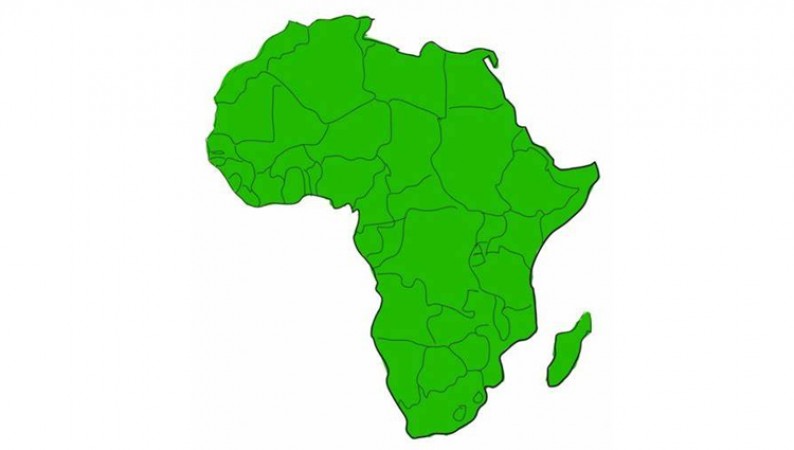
Africa's history is often overshadowed by the stories of other great civilizations, but the continent boasts a rich tapestry of ancient empires that left a lasting impact on culture, trade, and politics. Exploring these ancient African civilizations sheds light on their impressive achievements and challenges, dispelling misconceptions and revealing their true historical significance.
Ancient Egypt: The Land of Pharaohs
Egypt, one of the most famous ancient African civilizations, was a land of grandeur and mystery. Its civilization thrived along the Nile River, leaving behind monumental structures, stunning art, and a complex religious belief system. The majestic pyramids stand as a testament to the engineering prowess of the ancient Egyptians, and their pharaohs' legacies continue to captivate historians.
The Kingdom of Kush: Nubian Power
To the south of Egypt lay the Kingdom of Kush, which rose to prominence through cultural exchange with its northern neighbor. The Nubians of Kush developed their unique identity and traded goods with neighboring regions, leaving an enduring mark on the pages of history. The kingdom's capital, Meroe, was a bustling metropolis with significant economic and political influence.
Carthage: The Maritime Empire
Carthage, situated in present-day Tunisia, was a maritime empire known for its prowess in trade and exploration. The Carthaginians engaged in extensive commerce across the Mediterranean, but their rivalry with Rome ultimately led to the destructive Punic Wars. Hannibal, the Carthaginian general, remains renowned for his audacious military campaigns.
The Kingdom of Aksum: The African Traders
The Kingdom of Aksum, located in modern-day Ethiopia, was a major trading hub between Africa and the rest of the world. Aksumite merchants facilitated the exchange of goods along the Red Sea, bringing wealth and prosperity to their kingdom. The enigmatic Obelisks of Aksum stand as a testament to the empire's architectural achievements.
The Mali Empire: West African Glory
West Africa was home to the illustrious Mali Empire, which reached its peak under the rule of Mansa Musa. The Mali Empire was a center of wealth and learning, and Mansa Musa's legendary pilgrimage to Mecca remains a symbol of the empire's influence. Timbuktu, a city in Mali, became a renowned center of scholarship and trade.
The Great Zimbabwe: The City of Stone
In southern Africa, the Great Zimbabwe civilization flourished as an architectural marvel. Its stone structures stand as a testament to the ingenuity of the builders and the kingdom's cultural significance. While the reasons for its decline are not entirely clear, Great Zimbabwe remains a testament to the region's rich history.
The Songhai Empire: West African Powerhouse
The Songhai Empire succeeded the Mali Empire as a dominant power in West Africa. Under rulers like Sunni Ali and Askia the Great, the empire expanded its territory and achieved remarkable feats. However, internal strife and external pressures ultimately led to the empire's decline.
The Kingdom of Ghana: The Land of Gold
Ghana, not to be confused with the modern-day country of the same name, was an ancient kingdom that thrived on its wealth of gold. Ghana's strategic location allowed it to control important trans-Saharan trade routes, making it a powerful and prosperous civilization. Over time, internal conflicts and external pressures contributed to its decline.
The Benin Empire: Artistic Brilliance
The Benin Empire, situated in what is now Nigeria, was renowned for its artistic brilliance. The kingdom's craftsmen created intricate bronze sculptures and exquisite ivory carvings. European influence and subsequent conflict led to the eventual destruction of the city of Benin, marking the end of an era.
The Kingdom of Axum: The Red Sea Traders
Axum, in present-day Ethiopia, was a powerful kingdom that controlled the Red Sea trade routes. The Axumites embraced Christianity, making it one of the first African civilizations to adopt this religion. The decline of Axum remains a subject of scholarly debate, but its impact on trade and culture is unquestionable.
The Garamantes: Desert Oasis Civilization
The Garamantes were an enigmatic civilization that thrived in the Sahara Desert. They were skilled in harnessing water and agricultural techniques, enabling them to flourish in a challenging environment. However, the decline of the Garamantes is shrouded in mystery, leaving historians to ponder their ultimate fate.
The Kingdom of Mapungubwe: Southern African Center
In southern Africa, the Kingdom of Mapungubwe thrived as a significant center of trade and culture. The discovery of Mapungubwe revealed the extent of the kingdom's wealth and social structure. While the reasons for its eventual abandonment are not entirely clear, Mapungubwe's legacy endures.
The Mossi Kingdoms: Resilient Warriors
The Mossi Kingdoms, located in present-day Burkina Faso, were known for their resilience and martial prowess. The rise of the Mossi people led to the establishment of the powerful city of Ouagadougou. However, French colonization eventually altered the course of the Mossi Kingdoms' history.
The ancient African civilizations we have explored exemplify the continent's rich history and cultural diversity. These empires thrived in different regions and eras, leaving behind legacies that still influence Africa and the world today. Understanding their achievements and challenges allows us to appreciate the enduring contributions of ancient African civilizations to humanity's collective heritage.
Govt Action Looms for Twitter after Viral Video of Manipur Women Paraded Naked
Manipur Unrest: CM Urges Thorough Probe into Viral Video's Authenticity
Sonia Gandhi Urges PM Modi for Manipur Discussion in Parliament